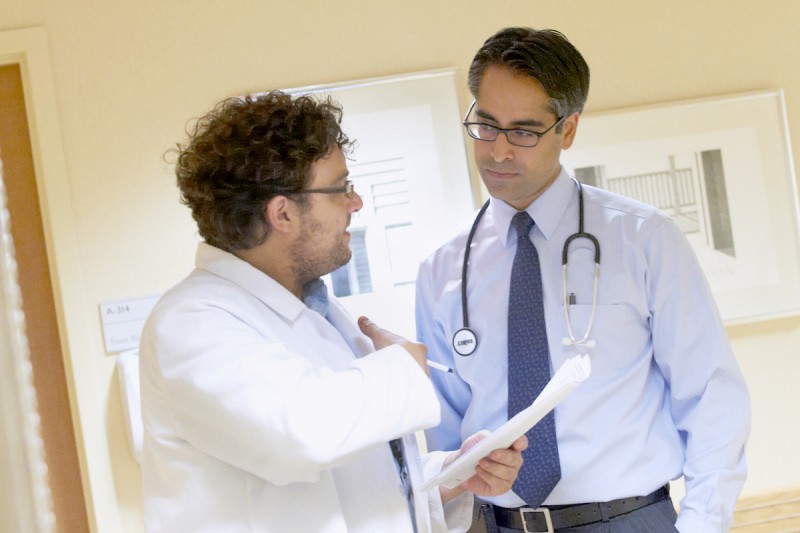
Memorial Sloan Kettering’s Pulmonary Service is dedicated to patient care, research, and training the next generation of pulmonary specialists.
Our busy inpatient service consists of three teams, one of which is procedural. Inpatient consults include all types of patients who have pulmonary problems associated with cancer, as well as other pulmonary disorders that are not unique to the cancer patient population.
The procedural team performs bronchoscopies (both rigid and flexible) and pleural procedures, including thoracentesis, placement of all types of chest tubes, and interpleural installations. The Pulmonary Service is also responsible for managing patients who are chronically ventilated, including weaning these patients from mechanical ventilation when possible. About 4,000 inpatient visits are conducted per year.
The outpatient Pulmonary Service is among the busiest subspecialties within MSK’s Division of Subspecialty Medicine. The service treats both internal referrals and patients who are new to MSK. These referrals involve the evaluation of patients with a range of diagnoses, many of them uncommon pulmonary diseases. About 6,500 outpatient visits are conducted per year.
We also have one of the busiest pulmonary function laboratories in the country. The lab is capable of doing conventional testing, bronchoprovocation challenges, and cardiopulmonary exercise testing. We perform about 10,000 tests each year.
Research interests within the service include the evaluation of different modalities for diagnoses of pulmonary disorders in immunocompromised patients, outcomes of patients with indwelling pleural catheters, and the role of oral microbiota in the development of pulmonary disease in hematologic stem cell transplant patients, to name a few.
Over the past several decades, the Pulmonary Service has grown to include ten attending physicians, including two interventional pulmonologists and six fellows.
We also are building a physician assistant (PA) program, with plans to eventually have a total of four on the Pulmonary Service. Our PAs help with clinical and interventional activities, which continue to expand.
To train future leaders in our field, we not only have a conventional fellowship in pulmonary medicine but also have the only interventional pulmonology fellowship in New York State. Each fellow is expected to do a research project, present that project at a national meeting, and bring it to completion with a published manuscript.
As of 2016 we will have graduated 64 fellows. Approximately half are now faculty affiliated with academic institutions, and some have gone on to subspecialities within pulmonary medicine such as pulmonary hypertension and interventional pulmonary.